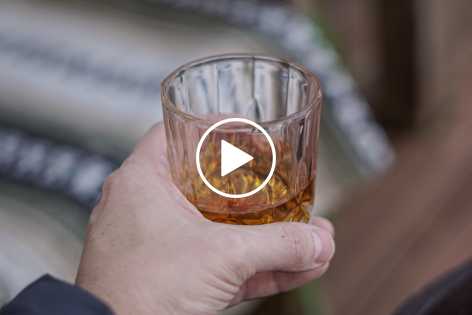
LMU 32 – Alcohol and Prostate Cancer: A Dose-Dependent Connection
Source: Journal – Biomedical Sciences – Cancer Research, November, 2016
Lifestyle Medicine Update (December 1, 2016)
Introduction:
In the intricate realm of cancer research, a pivotal study appeared in November 2016, gracing the pages of the esteemed journal “Biomedical Sciences – Cancer Research.” This study embarked on a meticulous journey, harnessing the power of a meta-analysis to explore the intricate relationship between alcohol consumption and prostate cancer. For years, the scientific community had been tantalized by studies like the Harvard Alumni Study, which hinted at the correlation between alcohol consumption and heightened prostate cancer risk. However, the lack of conclusive evidence compelled experts to tread cautiously, withholding definitive statements until a robust body of evidence appeared.
Unearthing a Dose-Dependent Trend: Alcohol and Prostate Cancer Risk
The veil of uncertainty finally lifted with the groundbreaking meta-analysis presented in the November 2016 issue. This comprehensive review, encompassing 27 available studies, casts a spotlight on alcohol’s role in prostate cancer risk. The findings illuminate a dose-dependent pattern, where the magnitude of risk escalates with the volume of alcohol consumed. In essence, the more one indulges in alcohol, the graver the threat of prostate cancer becomes.
The study’s outcomes unveiled a compelling narrative:
- Low-volume drinkers (up to two drinks per day) faced an 8% elevated risk of prostate cancer.
- Medium-volume drinkers (up to four drinks per day) encountered a 7% higher risk.
- High-volume drinkers (up to six drinks per day) confronted a 14% augmented risk.
Those venturing into the realm of higher-volume drinking (six drinks or more per day) were plagued with an 18% intensified risk.
A Paradigm Shift: Recognizing Alcohol’s Role in Prostate Cancer
The repercussions of this study have resonated deeply within the realm of healthcare expertise. Health professionals are contemplating the inclusion of prostate cancer alongside other malignancies wherein alcohol serves as a confirmed risk factor, a list encompassing breast cancer, liver cancer, colon cancer, and esophageal cancer. The mechanisms underpinning alcohol’s ability to fuel prostate cancer development are multifaceted, encompassing the generation of free radicals, estrogen escalation, and the disruption of folic acid metabolism—a pivotal process in synthesizing and stabilizing our genes. Although forthcoming investigations need to illuminate the intricate dynamics between alcohol and prostate cancer, and the intricate mechanisms steering the course of prostate cancer development, a sage approach beckons men to confine their alcohol intake to a mere 3-5 drinks per week, or even consider abstaining altogether.
Shaping Cancer Prevention: A Prudent Path
In an era when cancer looms as a formidable adversary, especially prostate cancer—ranked as the second leading cause of cancer-related deaths among men—a clarion call for proactive measures emerges. A compelling body of evidence underscores the potential to stave off up to 75% of prostate cancer cases through judicious dietary and lifestyle choices. The clarion call becomes resounding when evidence spotlights alcohol as a pivotal factor that can tip the scales in the battle against prostate cancer. Amidst the intricate tapestry of cancer prevention, a prudent stance emerges—limiting alcohol consumption, embodying a potent armor in the quest to mitigate prostate cancer risk.
References:

Dr. James Meschino
ABOUT THE AUTHOR
Dr. James Meschino, DC, MS, ROHP, is an educator, author, and researcher having lectured to thousands of healthcare professionals across North America. He holds a Master’s Degree in Science with specialties in human nutrition and biology and is recognized as an expert in the field of nutrition, anti-aging, fitness, and wellness as well as the author of numerous books.


